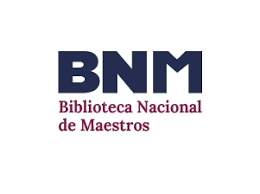PRECONCEIVED NOTIONS ABOUT LEARNING IN FIRST-YEAR STUDENTS OF THE BACHELOR’S DEGREE IN PSYCHOPEDAGOGY
DOI:
https://doi.org/10.63207/v5mehk09Keywords:
University, students, Psychopedagogy, learningAbstract
This article shares some results of a research that began in 2022, whose topic addresses the processes of knowledge construction, particularly of a nodal notion such as learning, in students studying the Bachelor of Psychopedagogy at a private university and a state university in the province of Córdoba (Argentina). This is a reconstructive analysis of the processes, from a psychogenetic and psychosocial perspective, using a longitudinal qualitative approach. In this paper we present a section in which we address preconceived notions, that is, preconceptual constructions as representations or beliefs held about learning identified in the utterances that young people express in written productions. 52 letters from students who were at the beginning of the first year of their degree are analysed. In the analysis we found that intuitive approaches to learning are associated with a process in which there is temporality as well as continuity and permanence; a novelty, given that learning incorporates new knowledge and a quantitative increase in more cumulative than transformative terms. In addition to these characteristics, they highlight the importance of experience and intersubjectivity when learning, and they also value subjective aspects such as the desire and interest in learning, while also considering that this determines the purpose or reason for learning.
Downloads
Downloads
Published
Issue
Section
License
Copyright (c) 2025 Sandra María Gómez

This work is licensed under a Creative Commons Attribution-NonCommercial-ShareAlike 4.0 International License.
Política propuesta para revistas que ofrecen acceso abierto
Aquellos autores/as que tengan publicaciones con esta revista, aceptan los términos siguientes:- Los autores/as conservarán sus derechos de autor y garantizarán a la revista el derecho de primera publicación de su obra, el cuál estará simultáneamente sujeto a la Licencia de reconocimiento de Creative Commons CC BY-NC-SA 2.5 AR que permite a terceros compartir la obra siempre que se indique su autor y su primera publicación esta revista.
- Los autores/as podrán adoptar otros acuerdos de licencia no exclusiva de distribución de la versión de la obra publicada (p. ej.: depositarla en un archivo telemático institucional o publicarla en un volumen monográfico) siempre que se indique la publicación inicial en esta revista.
- Se permite y recomienda a los autores/as difundir su obra a través de Internet (p. ej.: en archivos telemáticos institucionales o en su página web) antes y durante el proceso de envío, lo cual puede producir intercambios interesantes y aumentar las citas de la obra publicada. (Véase El efecto del acceso abierto).
![Osolev, A. (s.f). Textura 120 [Fotografía]. En: https://www.flickr.com/photos/13796443@N05/6833625332](https://www2.hum.unrc.edu.ar/ojs/public/journals/8/cover_issue_309_es.png)











